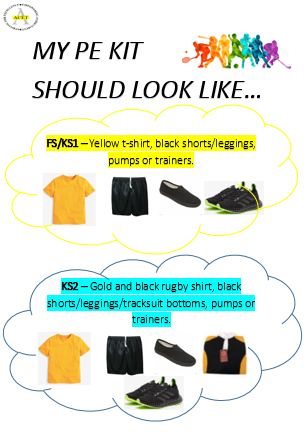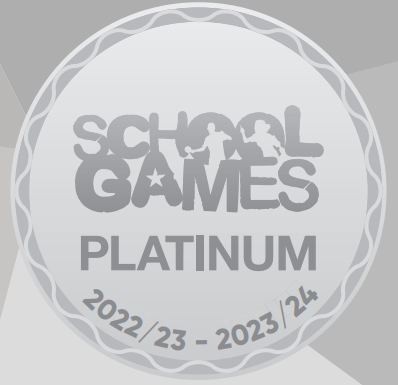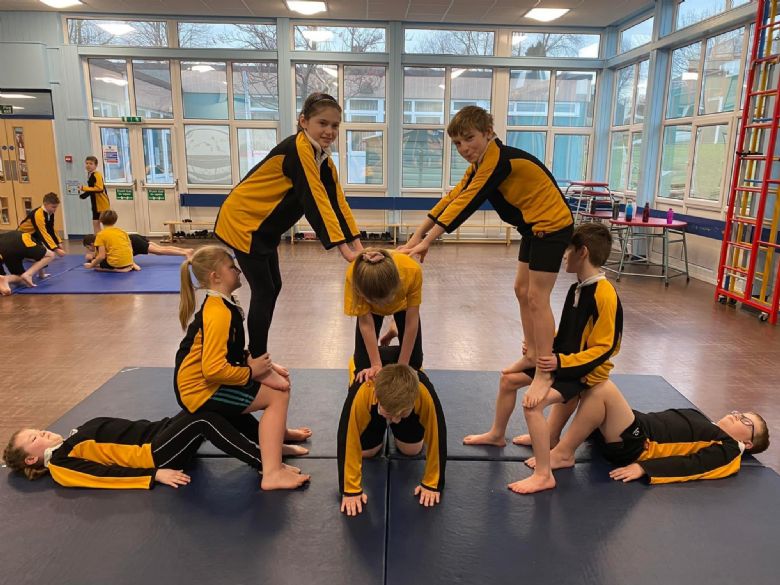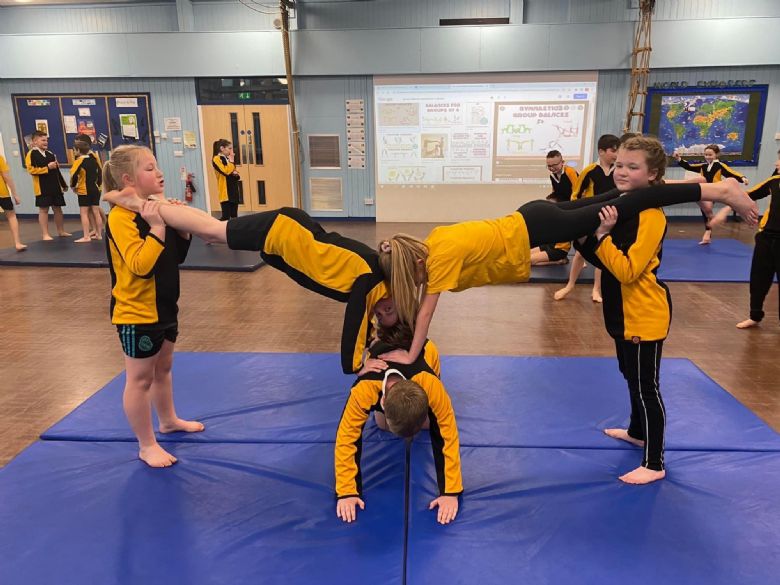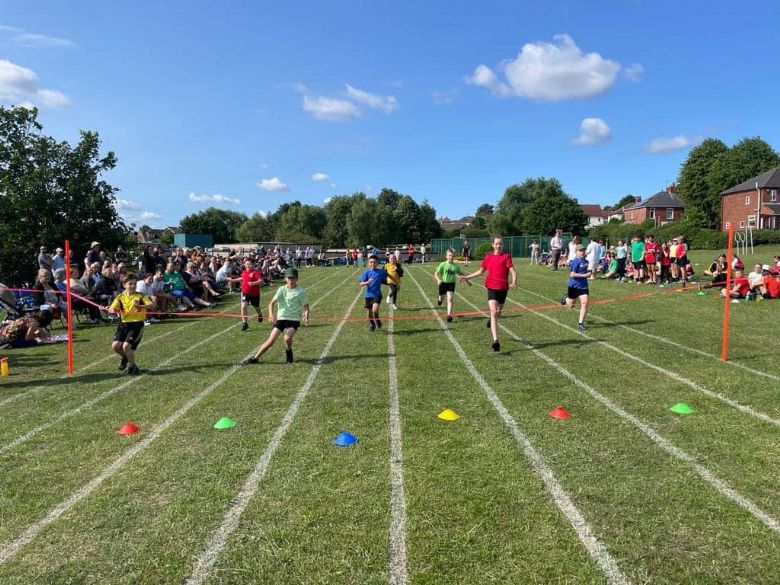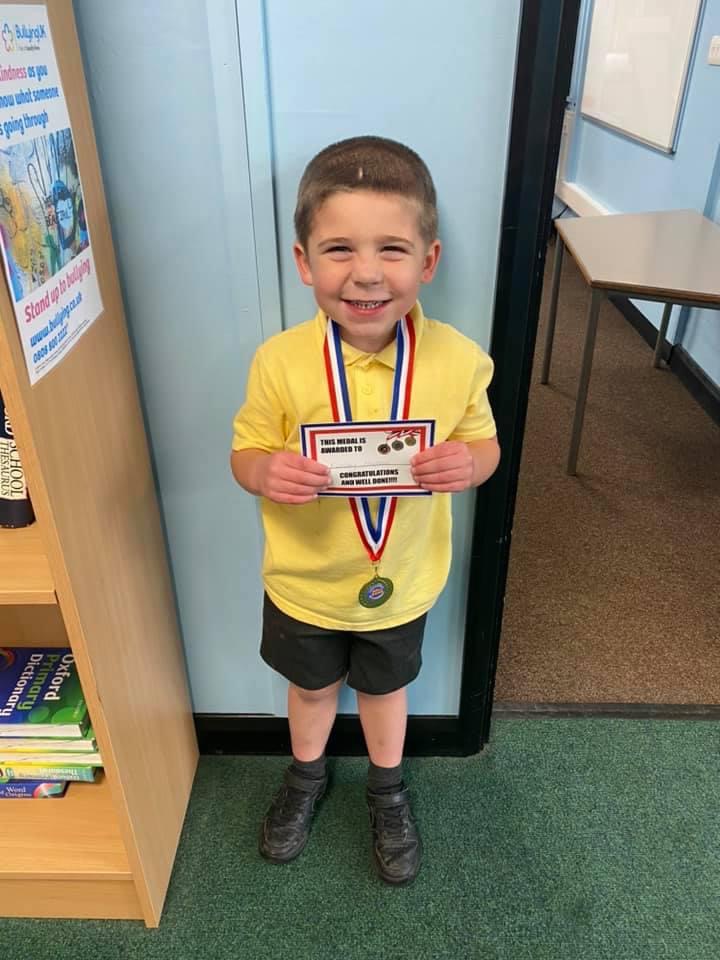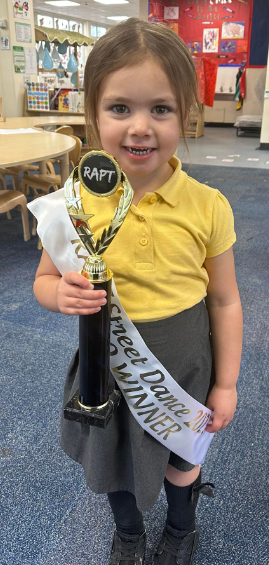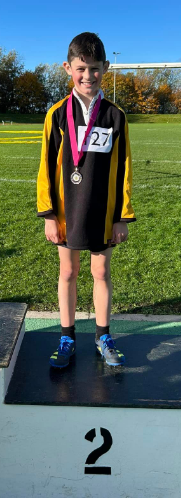Physical Education
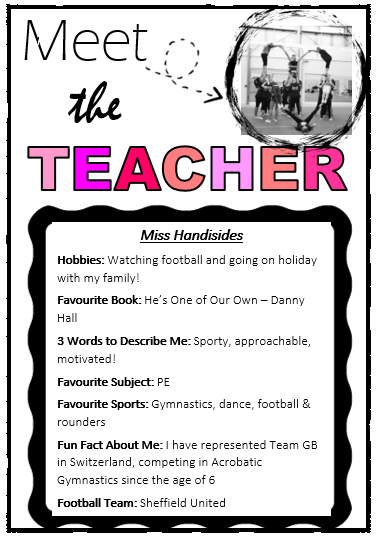
Intent
The Intent of Physical Education Curriculum across ACET Junior Academies, within Brookfield Junior Academy is to develop PE to ensure that all pupils, including those with SEND, will learn in a way that is differentiated and personalised to meet their needs. In doing so all pupils:
· Are passionate, engaged and enthusiastic about sport and being active, having a keen interest in PE with a willingness to participate eagerly in every lesson and the ability to make informed choices about engaging fully in extracurricular sport.
· Have the opportunity to experience a balanced and varied curriculum allowing pupils to participate in a wide variety of activities covering the development of fundamental skills in KS1 and then progressing to sport specific skills in KS2; including, invasion, striking and fielding, aesthetics and athletics sports.
· Can swim at least 25 metres before the end of Year 6 and know how to remain safe in and around water.
· Use sport specific terminology with confidence, building up an extended specialist vocabulary.
· Have and maintain high levels of physical fitness.
· Lead a healthy lifestyle which is achieved by eating sensibly, being aware of the dangers of drugs, smoking and alcohol, exercising regularly and understand the importance of mental well-being.
· Are able to remain physically active for sustained periods of time and have an understanding of the importance of this in promoting long-term health and well-being.
· Are willing to practise skills in a range of different activities and situations, alone, in small groups and in teams, and to apply these skills in chosen activities to achieve high levels of performance.
· Take the initiative and become excellent young leaders, organising, officiating, and evaluating what needs to be done to improve; motivating and instilling excellent sporting attitudes in others.
· Employ imagination and creativity in their techniques, tactics and choreography.
· Are able to improve their own and others’ performance.
· Can work independently for extended periods of time without the need for guidance or support.
· Have a sound understanding of different sports, their origins, including British and world-wide sporting role models.
· Are prepared to transition from EYFS to KS1 and to KS2 and then from KS2 to KS3 with the skills, knowledge, self-esteem and character to excel in KS2.
· Demonstrate attitudes and the ability to make informed choices about engaging fully in extracurricular sport.
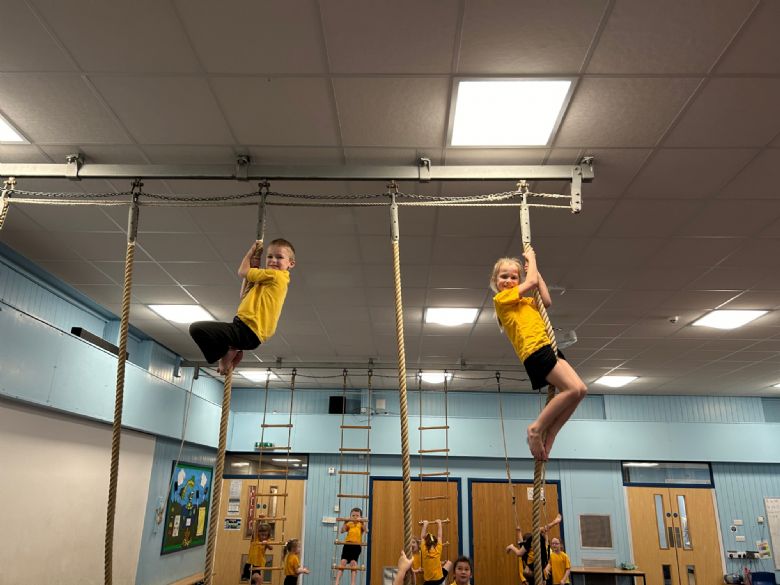
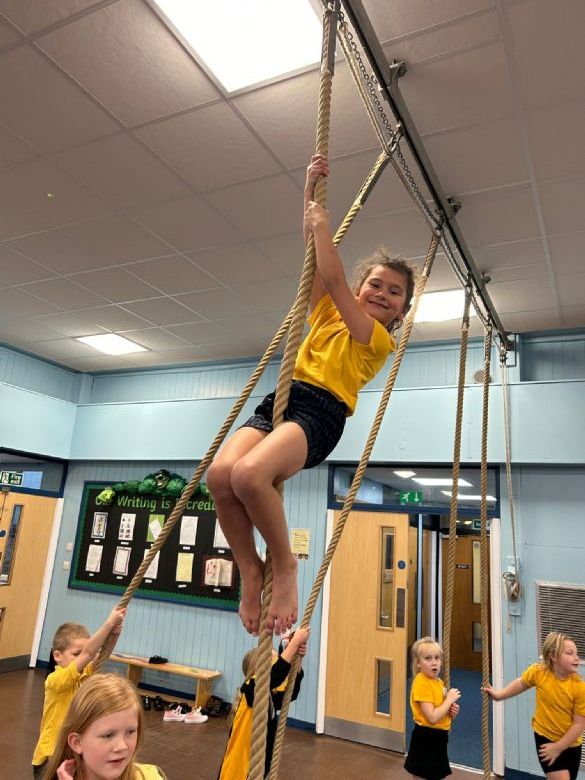
The intent of our curriculum is studying a variety of sports and activities. Teachers are provided with the ACET Primary PE curriculum overviews and schemes of work. As part of this planning process, teachers need to plan the following:
· A cycle of lessons for each subject, which carefully plans for progression, depth and is differentiated to the needs of the class.
· Challenge questions for pupils to apply their learning in a philosophical/open manner.
· Opportunities for pupils to experience tactics and strategies through a series of condition and competitive games.
· Opportunity to attend extra-curricular activities and represent the school.
· Celebrating successes and manage the challenges of defeat.
· Staff should have the opportunity to work with experts in the ACET team and learn from their work ethic and demonstrations of good practice.
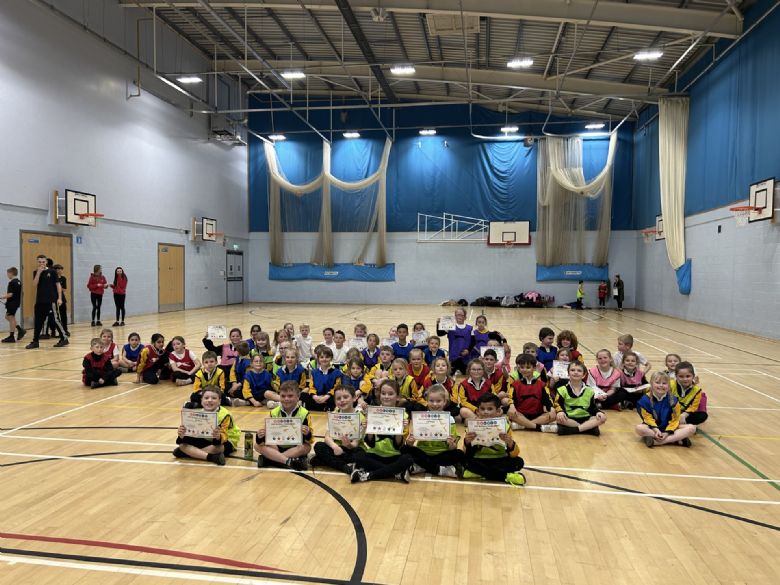
Implementation
In Key Stage 1, we teach dance, game skills, gymnastics, athletics and problem solving. In Key Stage 2 we teach dance, invasion games, striking and fielding games, gymnastics, swimming and water safety, athletics and outdoor and adventurous activities. Planning is based on the ACET PE schemes, which all ACET PE leaders from across the trust have collaboratively created together. Planning is also informed by ongoing assessment (based around National Curriculum objectives) and in order to build upon the prior learning of the children. In all classes, there are children of differing physical ability.
Whilst recognising this fact, we provide suitable learning opportunities for all children by matching the challenge of the task to the ability of the child. We achieve this through a range of strategies:
· Setting common tasks that are open-ended and can have a variety of results, e.g. timed events, such as an 80m sprint;
· Setting tasks of increasing difficulty, where not all children complete all tasks and allowing children to set their own challenges to achieve a personal best.
· Grouping children by ability and setting different tasks for each group, e.g. different games;
· Providing a range of challenge through the provision of different resources, e.g. different gymnastics equipment.
Early Years Foundation Stage
We encourage the physical development of children in FS2 as an integral part of their work. We relate the physical development of children to the objectives set out in the Early Learning Goals, which underpin the curriculum planning for children aged three to five years of age. We encourage children to develop confidence and control of the way they move, and the way they handle tools and equipment. We give all children the opportunity to undertake activities that offer appropriate physical challenge, both indoors and outdoors, using a wide range of resources to support specific skills. Children in FS2 have timetabled PE sessions and are offered extra-curricular opportunities in sport. 3 Resources There are a wide range of resources to support the teaching of PE across the academies. They are stored safely in easily accessible containers. Children help to set up and put away this equipment as part of their work. If any resources are missing or found to be damaged, the PE subject leader should be informed as soon as possible so that such items can be repaired or replaced.
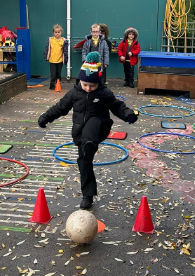
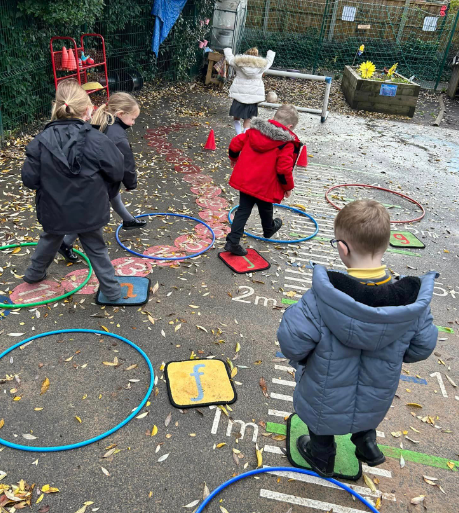
Health and Safety
The general teaching requirement for health and safety applies in this subject. ACET have sport specific risk assessments that staff adhere to. We encourage children to consider their own safety and the safety of others at all times. We expect them to change for PE into the agreed clothing for each activity area.
The school PE kit is as follows:
· FS/KS1: black shorts and gold t-shirt with PE pumps
· KS2 Indoor kit: black shorts, ACET black/gold (blue for Derbyshire academies) rugby shirt with indoor pumps
· KS2 Outdoor kit: Black joggers/tracksuit bottoms, ACET black/gold, rugby shirt with outside trainers Summer PE kit: White t-shirt replaces the rugby shirt
· All jewellery must be removed, including Fitbit style watches and earrings. If the child cannot safely remove earrings, they need to be covered up with tape/plasters.
· ACET have sport specific risk assessments in place. PE staff should set a good example to children and ensure that they are wearing appropriate footwear at all times.
Praise and Rewards
Pupils receive positive reinforcement throughout their lessons and are encouraged to praise each other. During the lesson stickers, are awarded for hard work, showing respect, resilience and teamwork. At the end of the session, a postcard will be sent home for the ‘star’ pupil/s. PE leaders within each academy will also adhere to academy-specific Behaviour and Rewards Policies. The text system is used to communicate with parents. If their child or class have had a successful PE session a text message will be sent that day to congratulate them. Each half term there is a PE celebration assembly where a student from each year group is awarded a PE medal. Why they have been chosen is explained to the rest of the academy to celebrate their achievements and inspire others. A photo of the pupil is then displayed in the hall. During assemblies, pupils who have represented the academy in competitions have their commitment recognised.
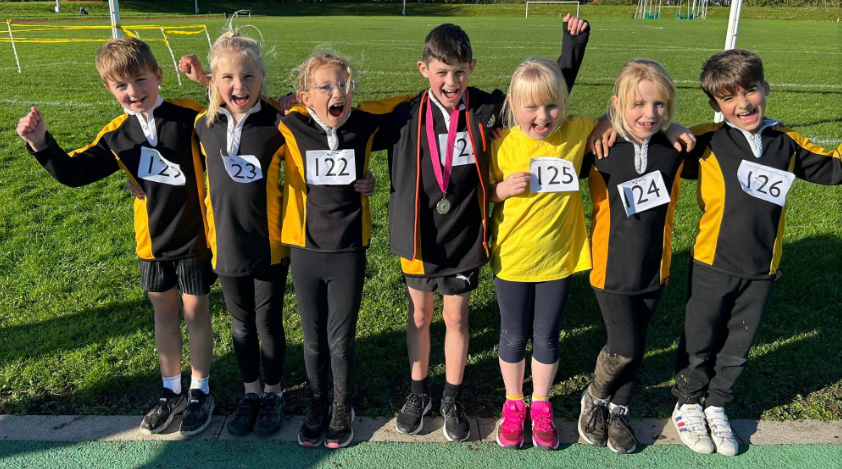
Extra-curricular Activities
We promote a wide range of activities for pupils of all ages. The academy provides a range of PE-related activities including football, multi-sports, yoga and dance for children at the end of the school day. These encourage children to further develop their skills in a range of the activity areas. To extend what is offered to pupils further we seek appropriate opportunities to invite outside coaches to enrich the curriculum. The academy sends details of the current club activities to parents/carers at the beginning of each term. The academy also takes part in local competitive events and ACET competitions. We aim for all KS2 pupils to take part in an out of school sporting event and all KS1 to take part in inter class competitions. This introduces a competitive element to team games and allows the children to put into practice the skills that they have developed in their lessons. These opportunities foster a sense of team spirit and co-operation amongst our children.
Contribution of PE to teaching in other curriculum areas
We seek out opportunities throughout the academic year to support learning in all year groups.
English: PE contributes to the teaching of English in our school by encouraging children to describe what they have done and to discuss how they might improve their performance. We have sport specific vocabulary on our schemes of work for each year group. PE also develops speaking and listening as children listen to and follow instructions and give constructive feedback to their peers.
Computing: We use IT to support PE teaching when appropriate. For example, in dance and gymnastics children can watch examples of the skills we want them to perform. We also use recording of the routines to help children to evaluate their performance.
PSHE and citizenship: Children learn about the benefits of exercise and healthy eating, and how to make informed choices about these things. Through friendly competition and team work, PE teaches respect, trust, mutual respect and tolerance. On the PE in depth over view each half term has a specific PSHE topic to cover. Spiritual, moral, social and cultural development: The teaching of PE offers opportunities to support the social development of our children through the way we expect them to work with each other in lessons. Their work in general enables them to develop a respect for other children’s levels of ability, and encourages them to co-operate across a range of activities and experiences. Children learn to respect and work with each other, and develop a better understanding of themselves and of each other.
Science/Maths: PE works closely with the science leader and contributes significantly to science activities. Through PE lessons we teach pupils about the effects of exercise on the body and about healthy eating. The in depth overview highlights a science object to cover in PE.
Impact
The ACET PE Leader and academy PE subject leader are responsible for monitoring the standard of the children’s work and the quality of teaching in line with the academy’s monitoring cycle. This may be through lesson observations, monitoring of assessments or pupil interviews. The ACET PE team meet regularly to share good practice and promote consistency across the trust. The subject leader is also responsible for supporting colleagues in the teaching of PE, for being informed about current developments in the subject and for providing a strategic lead and direction for the subject in the school/Trust.
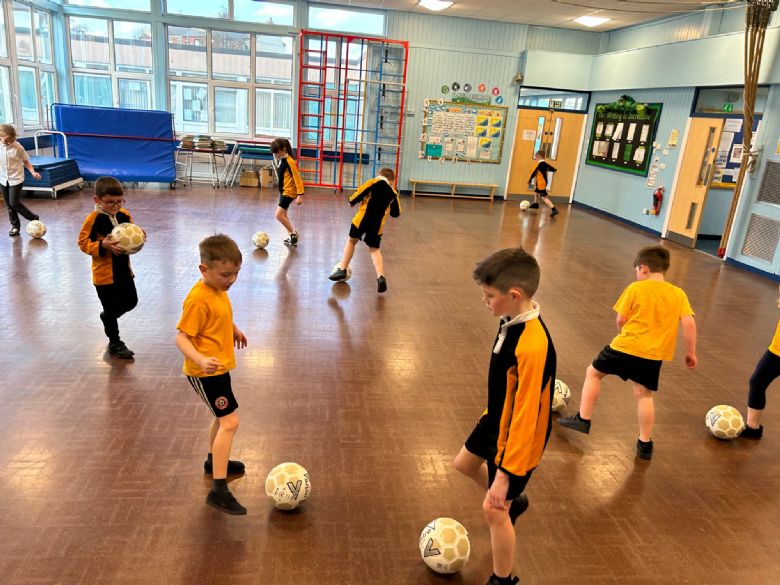
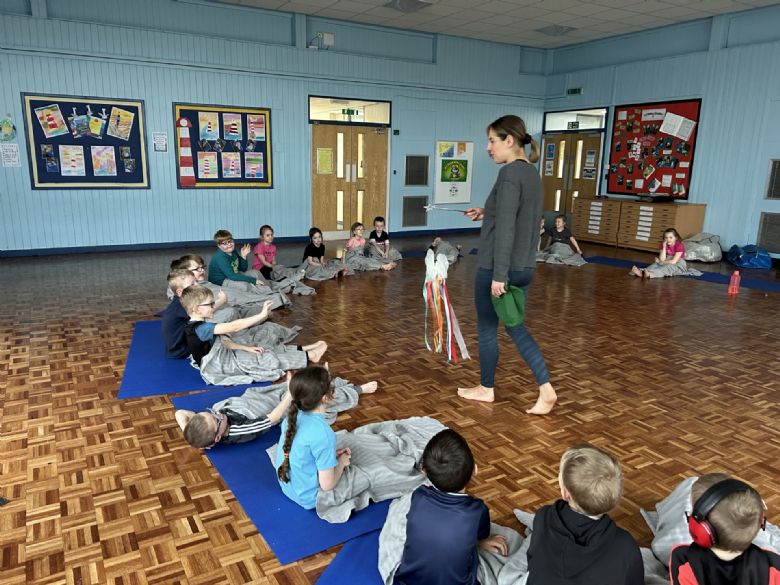
ACET
PE leaders are developed through the ACET Primary PE team who collaboratively plan, share good practice and regularly meet to develop the sporting opportunities across the trust. Staff are mentored by leaders and thoroughly supported through CPD, team teaching and by having the opportunities to observe staff in other ACET academies, learning from each other, sharing equipment and expertise to strengthen their practice. As a team there is an ACET PE competition timetable where all KS2 year groups are invited to compete in events against the other ACET academies.
